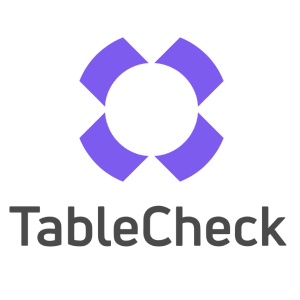Updated April 22, 2025
In-Demand IT Jobs in Japan for 2025: Market Trends and Top Roles
With technology continuing to revolutionize the way we connect and interact, Japan's tech industry is evolving at lightning speed.
As we continue to have new AI breakthroughs, cyber security threats are also on the rise. Meanwhile, businesses pursuing digital transformation initiatives are fueling unprecedented growth in the IT sector and generating new market trends that demand specialized expertise.
Needless to say, IT professionals with the right skills will be, no doubt, in high demand in 2025.
So let’s break down the IT jobs in demand in 2025, explore industry trends, and highlight some of the most popular skills that Japanese employers are looking for.
Let’s begin with an overview of the market trends in IT in 2025.
2025 Market Trends in IT: IT Jobs 2025
To stay ahead in the tech industry, it’s important to understand the broader economic and industry trends shaping the future of the job market.
According to the World Economic Forum’s Future of Jobs Report 2025, the digital economy is expanding rapidly, with technological advancements causing fundamental changes in workforce demands.
Among all thriving sectors, AI, automation, and digitalization seem to be the ones that are accelerating the most in 2025, leading to new job creation but also requiring workers to reskill and adapt.
What’s more, emerging industries, such as cyber security and cloud computing, are experiencing exponential growth. Of course, traditional IT roles are evolving to incorporate these new technologies.
Below are some of the biggest trends shaping the job market in 2025:
Generative AI
AI is no longer just a futuristic concept—its omnipresence is simply unavoidable! Nowadays, generative AI is making waves in everything from software development to creative content generation. Whether it’s automating workflows or helping businesses personalize customer experiences, AI power tools like ChatGPT are transforming the workplace.
Besides, with new large language models and generative visual models, such as Le Chat, DeepSeek, and Stable Diffusion, joining the game, the AI market is expanding more rapidly than ever.
Even according to the World Economic Forum’s report, the advancements in AI and information processing are expected to be transformative for businesses by 2030. Check out our dedicated post to learn more about ChatGPT’s impact in Japan.
Cyber Security
With cyber threats becoming more sophisticated, businesses are scrambling to strengthen their defenses. While cyber security may not seem like a new tech trend, the technology industry is placing special emphasis on it in 2025.
As organizations implement emerging technologies, robust cybersecurity frameworks become crucial for managing risks, protecting sensitive information, and maintaining strong customer relationships built on trust.
The scale and complexity of cyber threats continue to evolve alongside advancements in AI, automation, and data processing capabilities. AI-powered systems introduce new vulnerabilities that require proactive and innovative security measures.
Essentially, as long as technology continues to evolve, cyber security will remain a top priority, adapting to keep systems and information secure against ever-changing threats.
As cloud services and remote work continue to grow, it’s safe to say that cybersecurity experts will always be essential for protecting sensitive data.
Dev Ops
Companies need to release software faster and more efficiently, and that’s where DevOps comes in. DevOps is not just about automation; it’s about fostering collaboration between development and operations teams to achieve continuous delivery and deployment.
Naturally, businesses are on the hunt for engineers who can streamline development and deployment processes, ensuring faster software releases while maintaining high reliability and scalability.
The growing adoption of cloud-native applications, microservices, and container orchestration tools like Kubernetes has made DevOps an essential part of modern IT infrastructure.
What’s more, security is becoming increasingly integrated into DevOps, a practice known as DevSecOps, to ensure that applications are built with robust security measures from the get-go. As companies continue to prioritize efficiency and adaptability, the demand for skilled DevOps professionals will continue to grow.

AI and Machine Learning
We already mentioned generative AI, but generating content isn’t what AI is all about.
While everyone is focused on the “AI creating art” aspect, AI and machine learning are quite literally dominating the automation industry, acting as the main driving forces behind the sector’s “second wind.”
This, of course, means that companies are eager to hire professionals who can build intelligence systems that improve efficiency and help with decision-making.
Additionally, according to the same report by the World Economic Forum, roles such as AI and machine learning specialists are among the fastest-growing jobs globally today, reflecting the increasing adoption of these technologies across all industries.
Blockchain
Blockchain isn’t just about cryptocurrency anymore. This technology is revolutionizing industries like supply chain management, finance, healthcare, and even legal sectors by offering better security, transparency, and decentralized data management.
Today, the adoption of Blockchain technology is accelerating fast as businesses recognize its potential for improving efficiency and reducing fraud.
More specifically, in supply chain management, companies use Blockchain to create immutable records of transactions, ensuring product authenticity and reducing counterfeiting risks.
On the other hand, decentralized finance (DeFi) platforms in the financial sector leverage Blockchain to offer transparent, peer-to-peer financial services, minimizing the need for intermediaries.
The demand for Blockchain developers is increasing as industries seek professionals skilled in smart contract development, distributed ledger technology, and crypto graphics security. With the integration of Blockchain into AI-driven applications, businesses are exploring innovative solutions that combine data privacy and automation.
What Tech Skills Are In-Demand For 2025: High Demand IT Jobs In 2025
Japan is pushing hard for digital transformation, and one major challenge the country faces is the “2025 Digital Cliff.” The term has been around for a while, and it refers to the expected shortage of IT professionals by 2025 due to an aging workforce and a lack of skilled digital talent.
As companies embrace new technologies, the demand for skilled workers continues to outpace supply, threatening to slow down Japan’s technological progress. Businesses are investing heavily in training programs and seeking professionals with expertise in key areas to bridge this gap.
Here are some of the most popular tech skills for in demand IT jobs in 2025.
Cloud Computing
With businesses increasingly migrating to the cloud, expertise in cloud computing is currently in high demand.
Professionals skilled in platforms like AWS, Azure, and Google Cloud play a crucial role in managing cloud-based infrastructure, ensuring scalability, and maintaining data security.
As companies keep on with their digital transformation efforts, cloud architects and engineers will be essential for building resilient and cost-effective IT systems.
Cybersecurity
It’s an undeniable fact that cybersecurity is becoming more critical in today’s world, especially since organizations continue to rely on digital solutions at a never-before-seen pace.
With cyber threats evolving rapidly, companies need experts who can implement strong security measures to protect sensitive data.
Cybersecurity professionals are expected to have skills in risk management, threat detection, and network security protocols. The rise of AI-powered security solutions also requires professionals who understand machine learning algorithms to enhance cybersecurity defenses.

AI and Machine Learning
Artificial intelligence and machine learning are transforming industries all across Japan.
Today, companies are leveraging AI in myriad ways, including automating processes, enhancing decision-making, and developing intelligent applications.
This means that AI engineers with expertise in deep learning, natural language processing, and neural networks will continue to be in high demand in 2025.
What’s more, Japan’s push for automation in manufacturing and service industries means that AI-driven solutions will be at the core of business innovation this year.
Data Science
Data has become one of the most valuable assets for companies, and in today’s world, everything is digitalized. Modern tools enable organizations to analyze and extract insights from business operations at unprecedented scale and depth.
Data scientists play a crucial role in analyzing vast, extensive data sets to uncover trends and insights. Businesses are looking for professionals skilled in Python, R, SQL, and data visualization tools to help make data-driven decisions.
In Japan, companies across finance, healthcare, and retail industries are increasingly investing in data analytics, making this one of the most sought-after skills in the job market.
DevOps
DevOps is an essential practice for companies looking to improve efficiency and software development and deployment. It integrates development and IT operations to streamline workflows and enhance collaboration.
DevOps engineers must have expertise in CI/CD pipelines, automation tools, and cloud infrastructure management. In Japan, where businesses are striving to accelerate software delivery, professionals with DevOps skills will remain in high demand in 2025.
IT Jobs That Will Be In Demand In 2025: Top Tech Jobs 2025
It’s no secret that tech jobs are blooming worldwide, but some roles are in particularly high demand. The following jobs are listed in decreasing order of popularity, meaning the highest demand position appears first.
Here’s a detailed breakdown of the best tech jobs in 2025:
Project Manager
Project managers play a critical role in overseeing IT projects from inception to completion, ensuring that goals, budgets, and timelines are met efficiently.
Essentially, project managers collaborate with stakeholders, manage resources, and implement agile methodologies to continuously improve how projects are executed.
Among the necessary skills for this position are strong leadership, risk management, and communication skills. Additionally, technical knowledge of software development and familiarity with project management tools, such as Jira or Trello, are often required.
Data Analyst
Data analysts transform data into actionable insights, helping organizations make data-driven decisions.
Data analysts work with large data sets, applying statistical techniques and visualization tools to identify trans and patterns. Therefore, the skills required for this position include proficiency in SQL, Python, Excel, and visualization tools, such as Tableau or Power BI.
As businesses increasingly rely on data analytics for strategic planning, the demand for skilled analysts will continue to grow worldwide.
Business Analyst
Business analysts bridge the gap between IT and business, ensuring that technology solutions align with business needs.
Simply put, business analysts evaluate processes, gather requirements, and suggest improvements to optimize efficiency.
For this role, strong analytical thinking, problem-solving abilities, and knowledge of modeling techniques, such as UML or BPMN, are essential. Business analysts also use tools like Microsoft Visio, SQL, and Tableau to support decision-making.
Data Engineer
Data engineers design, build, and maintain systems that support large-scale data collection and processing.
Basically, data engineers develop pipelines for transforming raw data into usable formats, enabling data scientists and analysts to perform their work more effectively.
So, the required skills to be a data engineer include expertise in Python, SQL, ETL (extract, transform, load) processes, and big data technologies like Apache Spark and Hadoop.
As organizations continue to invest in data infrastructure, the need for skilled data engineers is increasing rapidly, making data engineers quite popular in the job market.
Java Developer
Java remains one of the most widely used programming languages, especially in enterprise applications and backend development. Java developers, essentially, work on building scalable applications, microservices, and cloud solutions.
For a Java developer, familiarity with frameworks such as Spring Boot and Hibernate and cloud platforms such as AWS is crucial. Many companies in Japan still rely on Java for their core systems, making it a highly valuable skill in the market.
To learn more about Java in Japan, check out our dedicated Java developer guide.
DevOps Engineer
DevOps engineers streamline software development and IT operations, promoting automation and continuous delivery. Their responsibilities include managing CI/CD pipelines, implementing infrastructure as code, and overseeing cloud deployments to ensure software is developed and released efficiently.
The required skills for this role include experience with Docker, Kubernetes, Jenkins, Terraform, and scripting languages, such as Bash or Python. Nowadays, security considerations are becoming an integral part of DevOps, often referred to as DevSecCorps, as we mentioned.
Software Developer
Software developers create applications, tools, and systems that power businesses. Depending on the industry and the project's requirements, they generally work with various programming languages.
As a software developer, you need strong problem-solving skills, experience with various software development frameworks, and a good understanding of agile methodologies.
With increasing demand for mobile and Web applications, software developers with full-stack expertise are particularly sought after today.
Network Engineer
Network engineers design, implement, and maintain organizations' critical IT network infrastructure. They work with routers, switches, firewalls, and cloud networking solutions to ensure secure and efficient data communication.
Beyond traditional networking expertise, familiarity with cloud-based networking solutions like AWS Networking or Google Cloud VPC has become increasingly important for professionals in this field.
Certifications such as Cisco CCNA or CompTIA Network+ are often required for this role, too.
Solution Architect
Solution architects are responsible for designing complex IT systems that meet specific business needs.
People occupying this role are often tasked with analyzing business requirements, selecting appropriate technologies, and ensuring that the proposed solutions integrate seamlessly within an organization’s IT ecosystem.
This position requires strong technical expertise, problem-solving abilities, and experience with cloud architecture (AWS, Azure, or Google Cloud). Being a solution architect requires a mix of technical knowledge and strategic thinking.

Data Scientist
Data scientists use machine learning and advanced analytics to extract valuable insights from data.
A data scientist’s job is to build predictive models, conduct deep learning experiments, and optimize algorithms to improve business processes. Essential skills for a data scientist include proficiency in Python, R, SQL, and machine learning frameworks such as TensorFlow or PyTorch.
With companies increasingly relying on AI and big data for decision-making, data scientists will remain in high demand in 2025.
Conclusion on Best IT Jobs 2025: What IT Jobs Have a Future?
The IT job market in 2025 is shaping up to be exciting, with AI, cyber security, and cloud computing leading the way. If you’re looking to break into the industry or advance your career, you can start by taking a look at the top tech companies in Japan.
We also have some additional helpful resources for those thinking about working in Japan, such as our guide on how to find a job as a software developer in Japan and our “Moving to Japan as a Software Developer” article.
By staying ahead of the trends, upskilling in these key areas, and utilizing the opportunities you’ll find on the Japan Dev job board, you’ll be well on your way to success in 2025 and beyond.
Get Job Alerts
Sign up for our newsletter to get hand-picked tech jobs in Japan – straight to your inbox.







